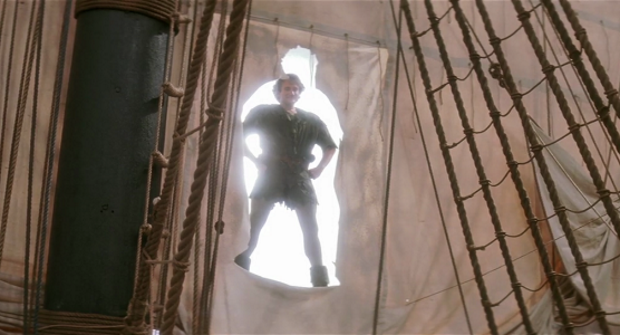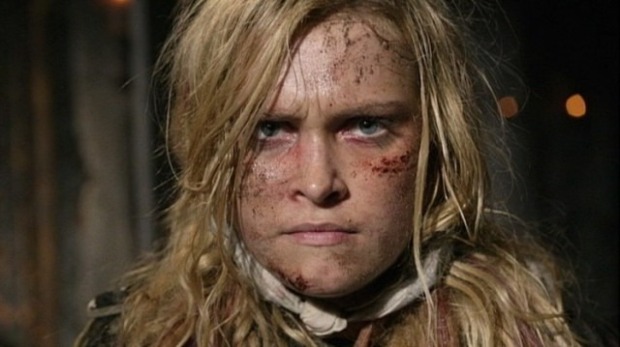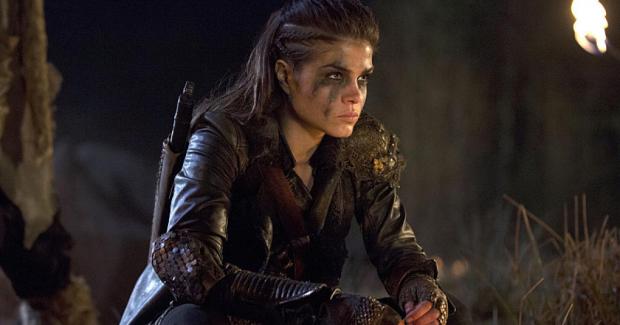An updated version of my LinkedIn profile can be found here. In this, I revised my summary, added experience and provided links to my work samples.
An updated version of my LinkedIn profile can be found here. In this, I revised my summary, added experience and provided links to my work samples.

As it so often does, nostalgia came into play when I decided to look back at a movie I’ve long admired for capturing my childish interest. Steven Spielberg’s Hook will be celebrating it’s 25th anniversary this December, two years after the death of beloved actor Robin Williams. Not even being born before the films 1991 release, I considered the young age I must have been when I first viewed the movie fondly, despite that it had scathing review after scathing review.
While I can now notice the slow buildup to where the movie truly starts, I was still struck by the sad reality of what it means to be an adult and, what I suspect to be even worse, a parent. Spielberg’s own fear of being an absentee father shines through, reflecting the attitudes often discussed in parenting today.
While the movie is regarded as one of the worst in Spielberg’s career and didn’t reach the success that was predicted of it, it still has something special to offer. Spielberg himself revealed in an interview that he wasn’t particularly fond of the movie and hopes to find something out of it if he ever happens to rewatch it.
Peter Banning (Robin Williams) is a work obsessed parent who often neglects his children. After leaving Never-Never Land and staying in the real world for too long, he’s lost all of his memories as his former self, Peter Pan. After his children are kidnapped by the revenge seeking Captain Hook (Dustin Hoffman), Peter must return to Never-Never Land to revisit his former life in order to save his kids. It’s a somewhat sad film: the boy who never wanted to grow up becomes the exact version of himself that he had feared.
Even being a bit too long and exposition heavy, running at 144 minutes, Hook is still worth the rewatch. I may have squirmed in my seat waiting for the action to truly begin, but the message that it projected after left me rooting for boy who finally grew up. This new Peter Pan has something special to teach us about what it means to be a parent, even in the modern day.

1. There’s still an imbalance between work and life.
Robin William portrays Peter Banning, a workaholic who attempts to do his best at spending time with his kids, but still falls short of his parenting role by putting his work before his family obligations. Although he goes to his daughter’s school play, he ignores it to accept a phone call during her performance. When he begins running late to his son’s baseball game that he promised to go to, he sends someone to film it until he gets there, but ends up missing the entire game.
It’s tough building a career when you have two young children who demand your attention. Peter’s business oriented career seems like a tough one that requires his constant presence , even when traveling to London to visit Grandma Wendy (Maggie Smith).
The balance between work and life is something we still haven’t quite figured out and the burden it can have on a parent’s relationship with their family can be devastating.

2. We’re glued to our mobile devices.
Exceptional businesses are often the first to adapt new technologies, and when the mobile phone phone was invented, the business world changed forever. This meant that for the first time ever, work could be taken outside.
Your job can now reach you anywhere and for Petter Banning, it does. Day and night, his large, clunky phone is glued to his side so he can answer phone calls no matter the occasion.
Cellular devices have only continued to influence businesses. With the boom in the internet and social media, businesses soon realized how important it is to market yourself online. We spend less time watching TV and more time staring at a tiny computer in our hands. Social media has allowed businesses stay constantly updated and in touch.

3. We don’t value family as much as we think we do.
America is one of three countries that doesn’t offer paid family leave, the other’s being Papua New Guinea and Suriname. This means that taking time off of work to care for you children or a sick loved one can have devastating financial consequences.
Peter can’t even escape from work when travels to London to help dedicate a home for orphans in the name of 90 year old Wendy. Throughout her life, she had taken in and found good homes for orphans, including Peter who had decided to stay in the real world when he fell in love with her granddaughter, Moira (Caroline Goodall.) Peter seems to hold Wendy dear to him, yet he hasn’t visited her in London in about ten years. When business becomes too much for him and he yells at his kids during an important phone call, he remarks that he should have never came to London in the first place.

4. We’re future oriented creatures who often don’t focus on the present.
Frustrated when Peter isn’t valuing his kids as much as his work, Moira tosses Peter’s phone out the window and warns him that he’s waisting the few precious years he has left with his children. “So fast, just a few years. Be careful, you are missing it.”
As humans, it seems we’re constantly striving for success and working to move forward in our careers. Every day there’s a new objective, a new goal. The cliche that time flies by seems to ring more true as we age. Americans have just begun to value what it means to be mindful. Having mindfulness allows you to focus on the here and now instead of blindsiding yourself with the future so much that you forget to cherish what you currently have.

5. Having children can allow you to revisit your inner child again.
Children have a unique imagination and say the most nonsensical things. They can come up with ridiculous games and push you past your energy level. That childlike sense of amazement and being carefree can be refreshing after spending your whole day dealing with reality. Being an adult is hard, sometimes we just need a good excuse to build a fort and make up fairytales.
When Peter finally embraces his own imagination and allows himself to act like a child again, he’s able to hone in on his skills as Peter Pan again and save his children. He comes to value what it means to have that childlike sense of wonder and not take life too seriously. He forms a new bond with his children that’s centered around fun and spending time with them.
Although it’s not a revolutionary film and didn’t have the success that was predicted of it, this reimagining of the Peter Pan classic has value to it that any age can enjoy. For parents, it might be a needed reminder to value the time they have left with their children. Everyone, including Peter Pan, has to grow up sometime.
There isn’t anything new I’ve seen recently, because most of the shows I’ve been watching have ended their seasons.

Clarke Griffin, played by Eliza Taylor in CW’s The 100, becomes Wanheda (Commander of Death.)
Television and movies often have no shortage of male characters dominating the screen while one to three leading females are thrown into the mix. Typically, if these women are in positions of power, they’re portrayed as either cold-hearted or are always letting their emotions get the best of them. They may even assert their dominance through cool karate moves from time to time. It seemed there had yet to be a show on television that seamlessly created three-dimensional female characters that were in equal positions of power, or (and this may sound crazy) outnumbered the men in leading roles. That is, until CW’s The 100 premiered in 2014.
Now on its third season, we’ve seen plethora of well rounded female characters who aren’t constrained into acting one way. They’re given a range of emotions and allowed to make mistakes, because they aren’t one character trying to relate to the entire female audience. They aren’t defined by the relationships their in or plagued by sexual violence to make their stories more “interesting.” Best of all: it’s normal and no one seems to question having so many female authority figures. These characters are treated as equals and taken seriously for their ideas and it’s downright refreshing. Here are seven things The 100 can teach us about female leaders
1. They’re capable of strength and tact in unique ways
Clarke Griffin (Eliza Taylor) is a natural born leader who is capable of strategizing a situation and waging war when she deems necessary. She doesn’t rely on magical kong-fu moves to take on her opponent and assert her dominance. Instead, she analyzes what’s in front of her and does her best to come up with a plan that leaves the least amount of blood on her hands, even if it doesn’t always work out that way.
2. Having emotions doesn’t mean they can’t make tough calls.
No simple cold hearted women here needed to lead the people effectively. The 100‘s female characters are often thrust into a variety of heartbreaking situations. A perfect example is in Season 2 when Clarke must decide between releasing the toxic air into Mount Weather, killing everyone including innocent people and children, or letting her friends and mother die in excruciating pain to a few of its inhabitants. She chooses the former to save everyone she cares about. Although the guilt takes a toll on her, she still does whatever she can to protect the ones she loves.

Octavia, played by Marie Avgeropoulus, learns about fighting tactics and transforms herself into grounder.
3. Being weak in the beginning doesn’t mean they can’t grow
Parents aren’t allowed to have more than one child on the Arc, so Octavia Blake (Marie Avgeropoulus) was kept secret by being trapped under a floor for about 16 years. When she’s finally released into freedom she goes a bit wild and is the most childlike one of the group. She often has to be protected and people don’t take her seriously. Instead of keeping Octavia into this one character type, she’s given the ability to develop into a strong willed person. Through the help of Indra (Adina Porter) and Lincoln (Ricky Whittle), she learns how to fight, take care of herself and protect her people.
4. They aren’t defined by their relationships or sexual orientation
Often, women are supporting characters and are there to continue a male characters story line. However, these leading ladies show us that women aren’t simply defined by the relationships that they’re in. When Clarke, Finn (Thomas McDonell) and Raven (Lindsey Morgan) are caught into a love triangle, the writers had the easy opportunity to pit the women against one another and focus the show on that aspect. Instead, feelings are hurt, but there are more important decisions to be made in this world and eventually Clarke makes the difficult decision to mercy kill Finn.
Television also often makes a big deal out of having queer or bisexual characters. Their character’s development is focused almost solely on that aspect, as if it’s their only defining trait. In the world of The 100, the protagonist Clarke is bisexual, but it doesn’t completely define who she is.

Abigail Griffin, played by Paige Turco, tries to juggle being the Arcadians chancellor and doctor.
5. Acknowledging they make not be right for the job doesn’t make them failures
In Season 3, it dawns on Clarke’s mother Abigail (Paige Turco) that she may not be right to handle the job as both chancellor and doctor of the Arcadians. Marcus Kane (Henry Ian Cusick) has grown since Season 1 from being a cold dictator-ish law enforcer, to a caring and understanding leader. Seeing this change in him and how he handles the people of the Arc, she acknowledges that he may be better suited for the job than she is and that’s okay. It doesn’t mean that she’s failed her job, just that someone else may be better suited for it.
6. They have a variety of leadership styles
Lexa (Alycia Debnam-Carey) is the leader of the grounders and guides her people in a different style. She’s been raised and trained in the ways of war and often makes decisions that Clarke doesn’t agree with. In Season 2 when she and Clarke discover that a bomb is going to drop on where their armies have set up camp, Lexa coerces Clarke to slip away and leave the others to die, so as not to give away that they have a spy on the inside of Mount Weather. Lexa also makes a deal to help Clarke save all of their people at Mount Weather. However, when Lexa is offered her people back as long as she doesn’t help Clarke’s team, she takes it offer and betrays the Arcadians.

Lexa, played by Alycia Debnam-Carey, grows as a leader with Clarke and learns that blood must not have blood.
7. Sometimes mercy is the more difficult route
“Blood must have blood” is the common saying among the grounders. They wage war and Lexa strikes down those who defy her. After meeting Clarke, Lexa learns that even though there may be a few who are evil, not everyone deserves to die for their mistakes.
“Our people act as if war is easier than peace. If that’s so, should we not try and achieve the more difficult goal?” Lexa says in Season 3, Episode 5 “Hakeldama.”
Lexa grows into a different type of leader and even forces Clarke to stay true to her word, when she’s presented in a similar situation that would mean the death of someone she hates. These are characters who are presented challenges and are developed throughout seasons. In the world of The 100, female leaders aren’t one and the same. Some are dark while other’s are compassionate, and they have the opportunity to grow as leaders over time. Nonetheless, one thing is certain: they are perfectly capable of calculating a situation no matter what their gender might be.